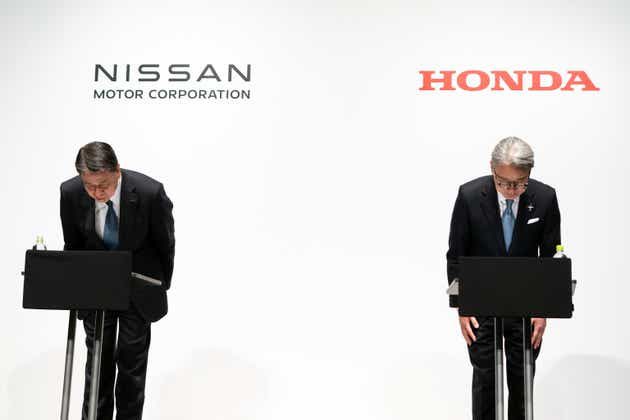Today, the Federal Open Market Committee (FOMC) meeting is expected to draw significant attention from the financial markets. Meanwhile, recent overnight developments have sparked major changes in the global economic landscape. A standout announcement comes from Japan, where Honda (HMC) and Nissan (OTCPK:NSANY) are in talks to form a crucial partnership. This alliance could potentially safeguard Nissan from facing bankruptcy threats in the upcoming year. Although the details of the agreement remain unclear, Mitsubishi Motors (OTCPK:MMTOF), in which Nissan holds a major stake, might also join this newly formed automotive group.

Industry Restructuring
Regardless of whether this collaboration leads to a merger, alliance, capital tie-up, or a large holding company, it is set to reshape Japan’s automotive industry. On one side will be the Honda alliance, including Nissan and Mitsubishi, and on the other, Toyota’s (TM) coalition, which features Subaru, Mazda, and Suzuki. Earlier this year, Honda and Nissan had already started setting the stage for this collaboration by agreeing to cooperate on electrification. Their relationship was further cemented in June with joint efforts in batteries and software, and a similar agreement involving Mitsubishi Motors.
Evolution of the Automotive Market
Over the past decade, automobiles have evolved into advanced smart devices, leading to intense competition in the “software-defined vehicle” (SDV) market. Automakers that lag in modernizing vehicle architectures risk becoming obsolete or facing financial difficulties. In response to the costly shift to electric vehicles, many traditional automakers are forming strategic alliances, such as Rivian with Volkswagen, to stay competitive in today’s automotive market.
The Rise of New Entrants
New industry players have thrived by mastering the SDV market and electrification, often leading the charge in this transformation. Companies like Tesla (TSLA) and China’s BYD (OTCPK:BYDDY) have made a mark through their innovative approach and capability for over-the-air updates, which continuously enhance their vehicles long after production. These companies have integrated production and development in-house, achieving higher profit margins by effectively controlling their supply chains from components to batteries.
Potential Impacts and Outcomes
The proposed partnership between Honda and Nissan seeks to enhance their global competitiveness, particularly in key markets like China, which made up nearly 70% of global EV sales in November. For Nissan, a company once at the forefront with its Leaf model, the partnership offers a chance to stabilize and recover both financially and reputationally. While the benefits for Honda are less immediately obvious, they might include cost reductions through shared platforms, better investment potential in emerging technologies, and quicker progress on EV initiatives. The true challenge lies in Honda and Nissan’s ability to blend their different corporate cultures. Market responses have been varied, with Honda (HMC) shares dipping by 3% in U.S. premarket trading, while Nissan (OTCPK:NSANY) has seen an impressive 24% rise in Japan, making it the top performer on the Nikkei 225 Index (NKY:IND).